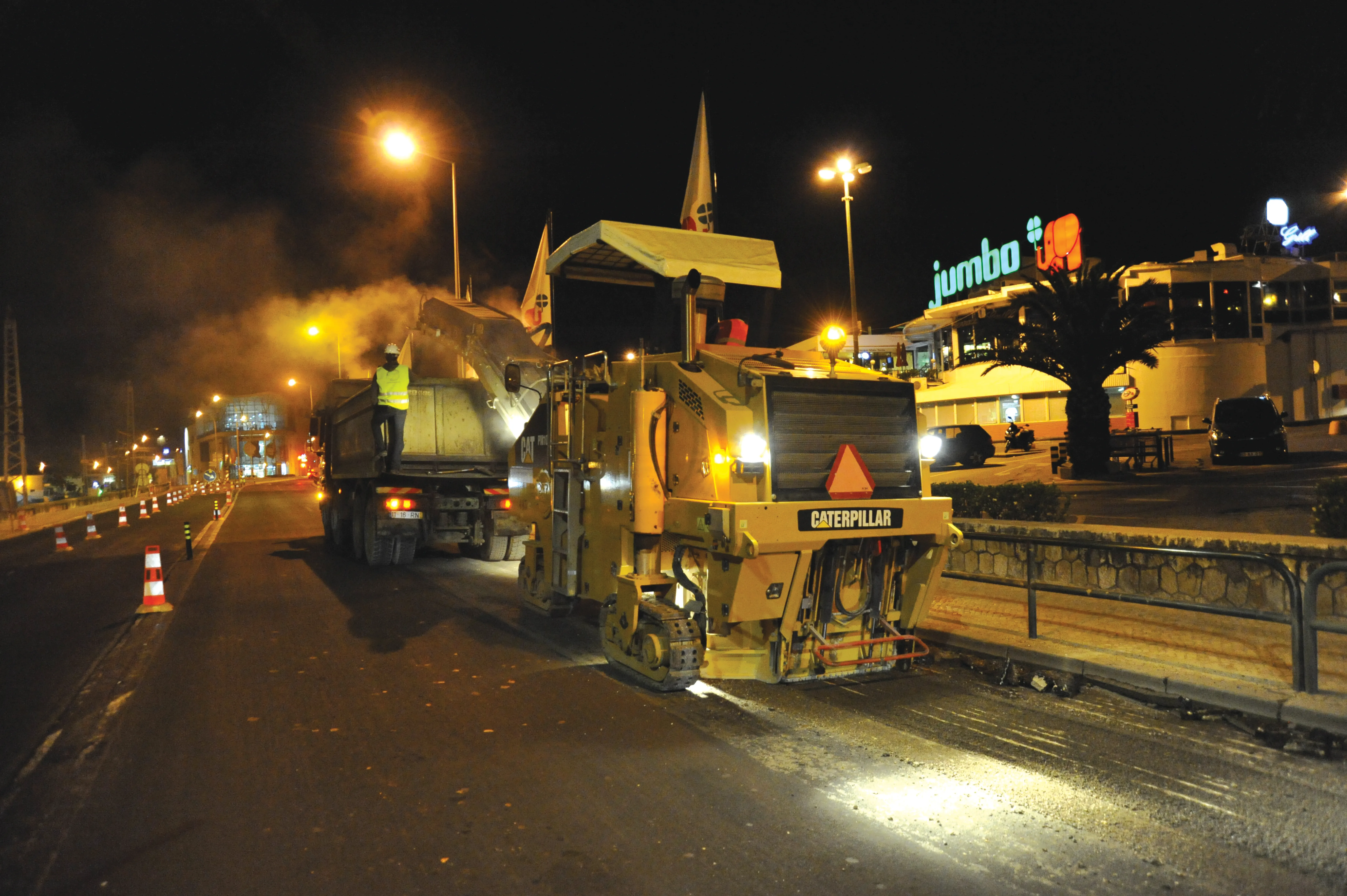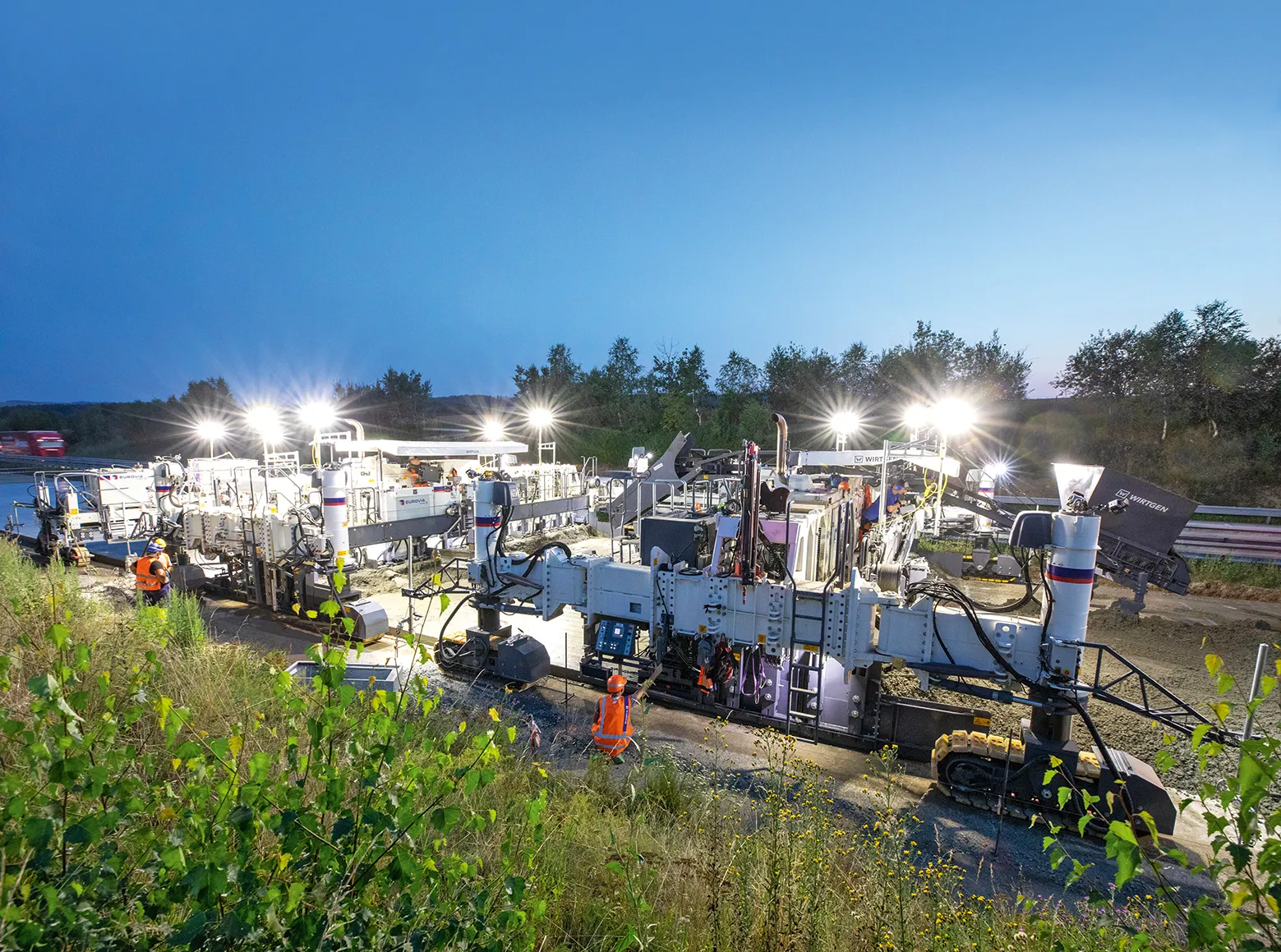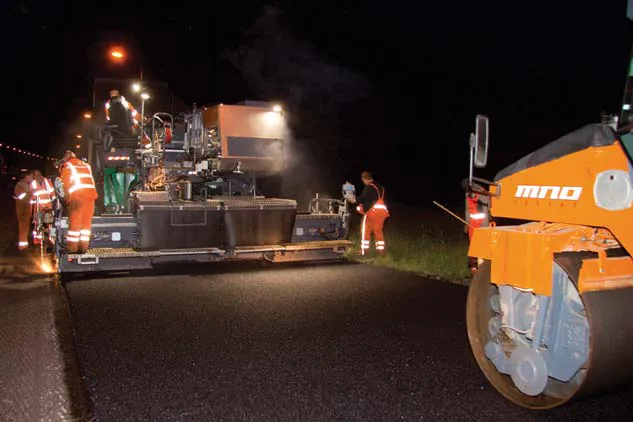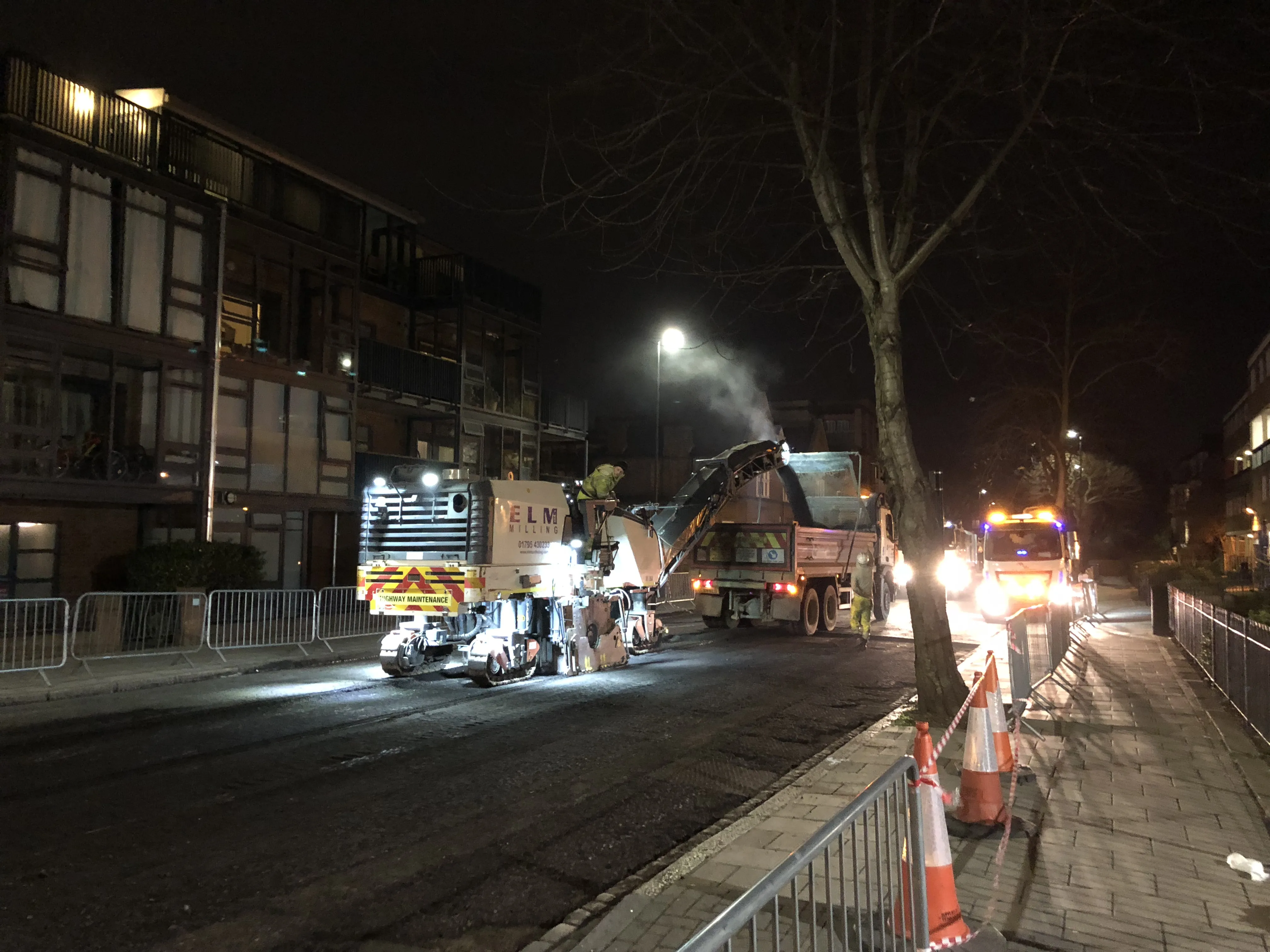Caterpillar pavers were used recently to help improve drainage on a vital road into a popular tourist destination in Portugal. The Avenida Marginal is the main road access into Cascais, a village with historic hotels, winding roads and stunning views of the Atlantic Ocean attracting thousands of holidaymakers each year. However, the highway had been suffering from poor draining resulting in rivulets being formed in heavy rain, making travelling hazardous for cars and pedestrians alike.
June 22, 2012
Read time: 3 mins

The Avenida Marginal is the main road access into Cascais, a village with historic hotels, winding roads and stunning views of the Atlantic Ocean attracting thousands of holidaymakers each year.
However, the highway had been suffering from poor draining resulting in rivulets being formed in heavy rain, making travelling hazardous for cars and pedestrians alike.
Paving contractor specialist Sanestradas were appointed by the local authority responsible for Cascais to deliver improvements.
Most of the 1km road section affected, only needed minor attention with the exception of a 65metre stretch that had incurred damage during a building construction project. The work would house the new drainage system within the 65metre stretch and would allow for the rainfall to be channelled via the gutter. However, 300 metres of the road were so flat that rain stagnated rather than flowed. Creating a gradient by resurfacing was ruled out as the pavement only had an average height of 100mm, which, if introduced, would have seen rain flow onto the pavement itself.
After local rulers decided the new drainage system had to be installed first, Sanestradas removed the 65metres of damaged curb and the ditch floor area was replaced with two 200mm layers of crushed, aggregate base of extensive granulometry that featured irrigation fluidised MC70 bitumen at an impregnation rate of 1 kg/m2. A binder layer of an 11cm thickness was applied on top, followed by the wear layer at an average thickness of 6cm. As the remainder of the road section did not need new base layers or any other improvements, the milling crew removed 6cm of material. The paving crew then placed an AC 14 Surf 35/50 (BB) wear layer over both the rebuild and milled portions of the project.
Crews were given two weeks to complete the project and work could only be carried out during the night. In addition, no work could take place on Fridays, Saturdays and Sundays when the weekend tourists visit the village.
A Cat PM102 Cold Planer removed the 6cm of asphalt where required. With a cutting width of 100cm, the Cat PM102 was deemed a good fit for the narrow road while delivering the productivity needed to mill a lane in two nights. The tight timeframe left no margin for error and for this reason, two service technicians from STET, the local Cat dealer remained on site just in case they might be needed.
Once a lane was milled, the tandem pavers went to work with delivery trucks unloading the material into the hoppers. Sanestradas selected the Cat AP555E with an AS4252C screed. The lighter weight design of the AP555E is said by Cat to allow contractors to haul the paver along with other necessary job site equipment, maximizing machine transport while minimising costs. Working just a few metres ahead was the Cat AP655D track-type paver, a versatile machine in the 18-19tonnes major class size.
Three Cat compactors, the CB434D, PS300B and CB34 were also used for the tight-deadline works which were said to be completed on time and to the satisfaction of the local authorities.








